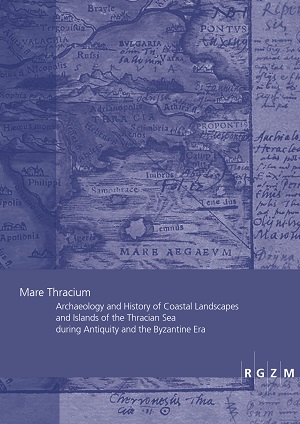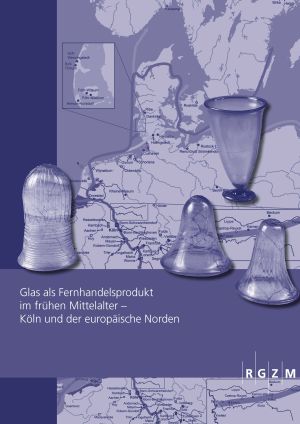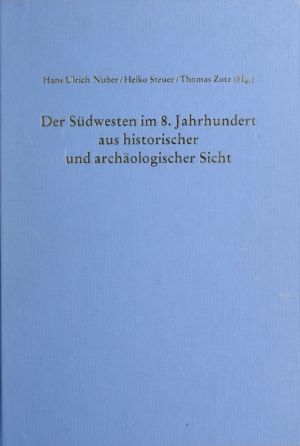Ettel, Peter
Mare Thracium: Archaeology and History of Coastal Landscapes and Islands of the Thracian Sea during Antiquity and the Byzantine Era. International Workshop within the Framework of the DFG Project »The Thracian harbour city Ainos in Roman and Byzantine times – the development of a traffic hub in a changing environment«
Despite its peripheral location, the Mare Thracium was an integral part of the Mediterranean world. The wealth of its resources and the rivers connecting to the Thracian hinterland were of great importance. Numerous harbour cities contributed significantly to the development of the region from the Archaic to the Byzantine period and even beyond.
The contributions in this volume originated from a workshop held in Mainz in 2016 as part of the DFG Priority Programme (SPP 1630) »Harbours from the Roman Period to the Middle Ages«. They deal with the natural conditions for seafaring, historical developments, the physical remains of coastal settlements and their harbours, and underwater finds.
Glas als Fernhandelsprodukt im frühen Mittelalter – Köln und der europäische Norden: Zwei Workshops im Rahmen des DFG-Schwerpunktprogramms »Häfen von der Römischen Kaiserzeit bis zum Mittelalter«, ausgerichtet vom Römisch-Germanischen Museum zu Köln, 8.-10. November 2016 und dem Sydvestjyske Museer in Ribe / Dänemark, 20.-22. März 2018
The Six-Year Priority Programme (SPP) 1630 „Ports from the Roman Imperial Period to the Middle Ages“, funded by the German Research Foundation (DFG), led to an interdisciplinary and networked cooperation between several project groups – Rhine, North Sea, Baltic Sea and inland ports – with research on early medieval glass finds at ports. External institutions and persons dedicated to research on the production and distribution of glass in the early Middle Ages were also included in the exchange taking place within the priority programme. The cooperation linked different regions: the Frankish Empire and the territories of the Frisians, Saxons, Vikings and Slavs.
Without the SPP, such networked and far-reaching research would not have been possible. The sub-project „The Early Medieval Port of Cologne – Production Site and Export Port for Glass“ with the glass workshops of the Merovingian and Carolingian periods recorded there, which were archaeologically and scientifically evaluated, forms the starting point for research on the early medieval economic history of glass in this volume.
The twelve contributions are based on lectures given at two conferences organised by the Römisch-Germanisches Museum of the City of Cologne (9-10 November 2016) and the Sydvestjyske Museum in Ribe, Denmark (20-22 March 2018).
Der Südwesten im 8. Jahrhundert aus historischer und archäologischer Sicht
On October 28 and 29, 1994, the Freiburg Research Network "Archaeology and History of the First Millennium in Southwest Germany" organized a colloquium at the University of Freiburg with the topic "The Southwest in the 8th Century from a Historical and Archaeological Perspective".
During the colloquium in 1994 such a period of upheaval was to be looked at more closely with the 8th century. This period, which cannot be strictly defined as a century, shows its transitional character in various respects, e.g. in political history with the striking end of the Alemannic duchy in the middle of the century and the integration of Alemannia into the Frankish Empire, in settlement archaeology with the flowing end of the row grave custom, the typical burial custom in the Merovingian Empire, and thus of the so-called row grave civilization. It was the intention of the colloquium to work out selective and long-term changes of this kind in the concentration on a region characterized by manifold historical traditions (Celts, Romans, Alemanni) as well as in the specific comparison with other historical landscapes and to approach the topic both in a general overview and in individual case studies.









